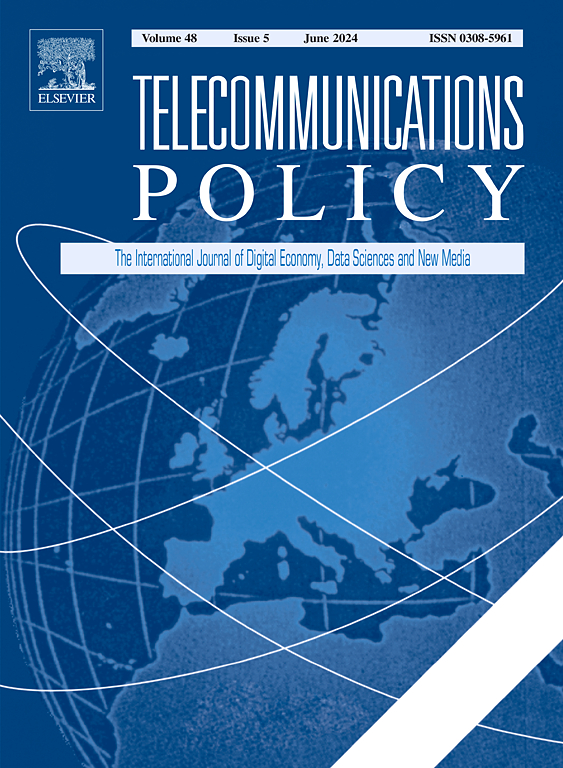Does artificial intelligence matter for the population aging-inclusive growth nexus? International evidence
IF 6.4
2区 管理学
Q1 COMMUNICATION
引用次数: 0
Abstract
Population aging is increasingly becoming a major challenge to global sustainable development, and the rapid development of artificial intelligence is expected to produce dividends to cushion the negative impact of population aging. This study uses cross-country panel data from 2003 to 2021 to examine the impact of population aging on inclusive growth and explore the role of artificial intelligence. Empirical results show that population aging has a significant negative impact on global inclusive growth, and demographic changes exacerbate the crisis of sustainable development. Specifically, population aging exacerbates the employment difficulties of groups with downgrading skills, inhibits the technological innovation, and inhibits the acquisition of educational skills, thereby indirectly inhibiting inclusive growth. Although artificial intelligence is the threshold variable for population aging to affect inclusive growth, the effect does not change significantly above and below the threshold. Finite mix models can better capture the buffering effects of artificial intelligence, and as artificial intelligence applications increase, population aging has less negative impact on inclusive growth. These findings contribute to the optimization of public policies for population development and artificial intelligence applications.
人工智能对人口老龄化与包容性增长之间的关系重要吗?国际证据
人口老龄化日益成为全球可持续发展的重大挑战,人工智能的快速发展有望产生红利,缓解人口老龄化带来的负面影响。本研究利用 2003 年至 2021 年的跨国面板数据,研究人口老龄化对包容性增长的影响,并探讨人工智能的作用。实证结果表明,人口老龄化对全球包容性增长具有显著的负面影响,人口结构的变化加剧了可持续发展的危机。具体而言,人口老龄化加剧了技能下降群体的就业困难,抑制了技术创新,抑制了教育技能的获得,从而间接抑制了包容性增长。虽然人工智能是人口老龄化影响包容性增长的临界变量,但在临界值上下,其影响并没有显著变化。有限混合模型可以更好地捕捉人工智能的缓冲效应,随着人工智能应用的增加,人口老龄化对包容性增长的负面影响也会减少。这些发现有助于优化人口发展和人工智能应用的公共政策。
本文章由计算机程序翻译,如有差异,请以英文原文为准。
求助全文
约1分钟内获得全文
求助全文
来源期刊

Telecommunications Policy
工程技术-电信学
CiteScore
10.80
自引率
12.50%
发文量
122
审稿时长
38 days
期刊介绍:
Telecommunications Policy is concerned with the impact of digitalization in the economy and society. The journal is multidisciplinary, encompassing conceptual, theoretical and empirical studies, quantitative as well as qualitative. The scope includes policy, regulation, and governance; big data, artificial intelligence and data science; new and traditional sectors encompassing new media and the platform economy; management, entrepreneurship, innovation and use. Contributions may explore these topics at national, regional and international levels, including issues confronting both developed and developing countries. The papers accepted by the journal meet high standards of analytical rigor and policy relevance.
 求助内容:
求助内容: 应助结果提醒方式:
应助结果提醒方式:


